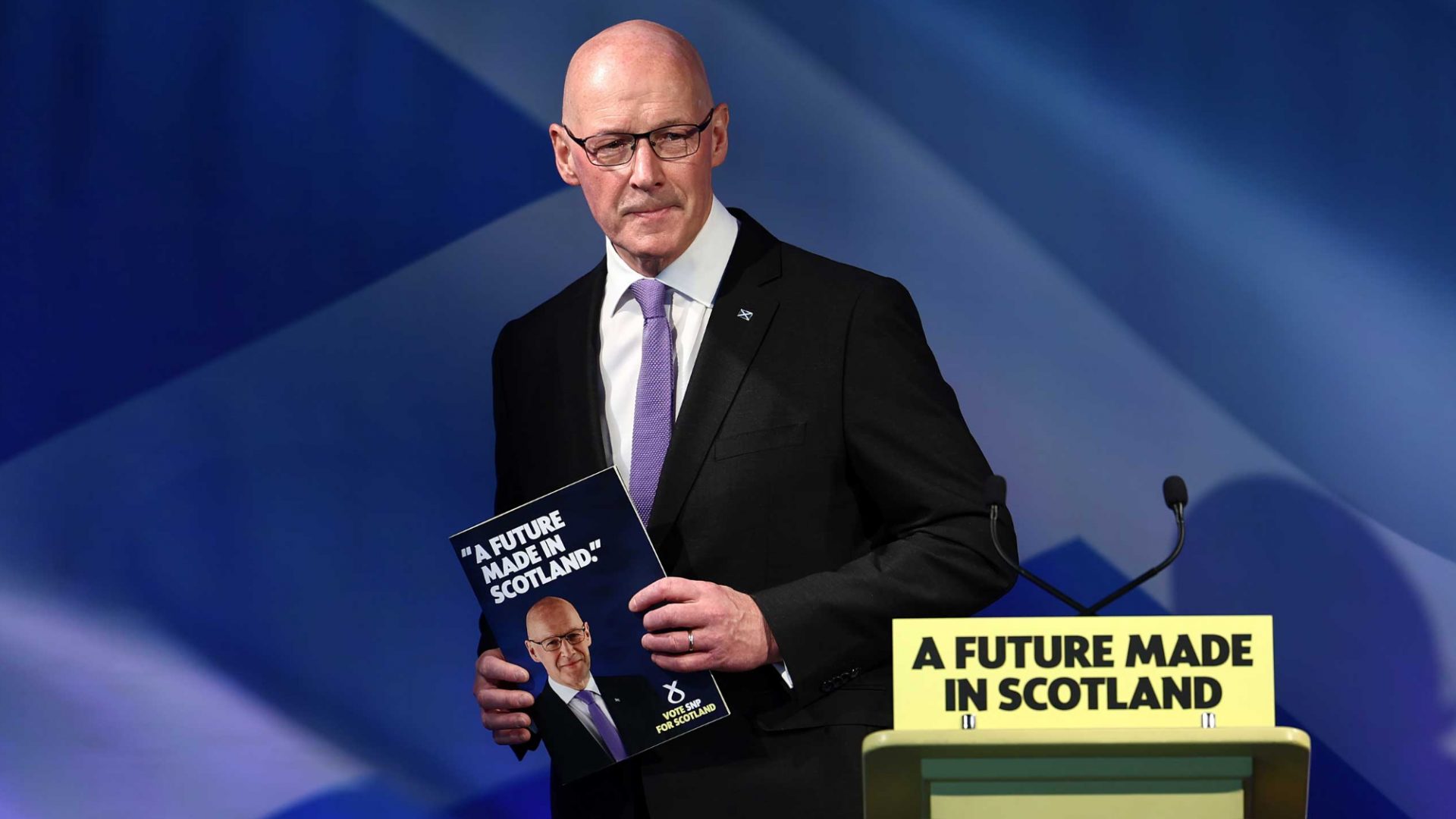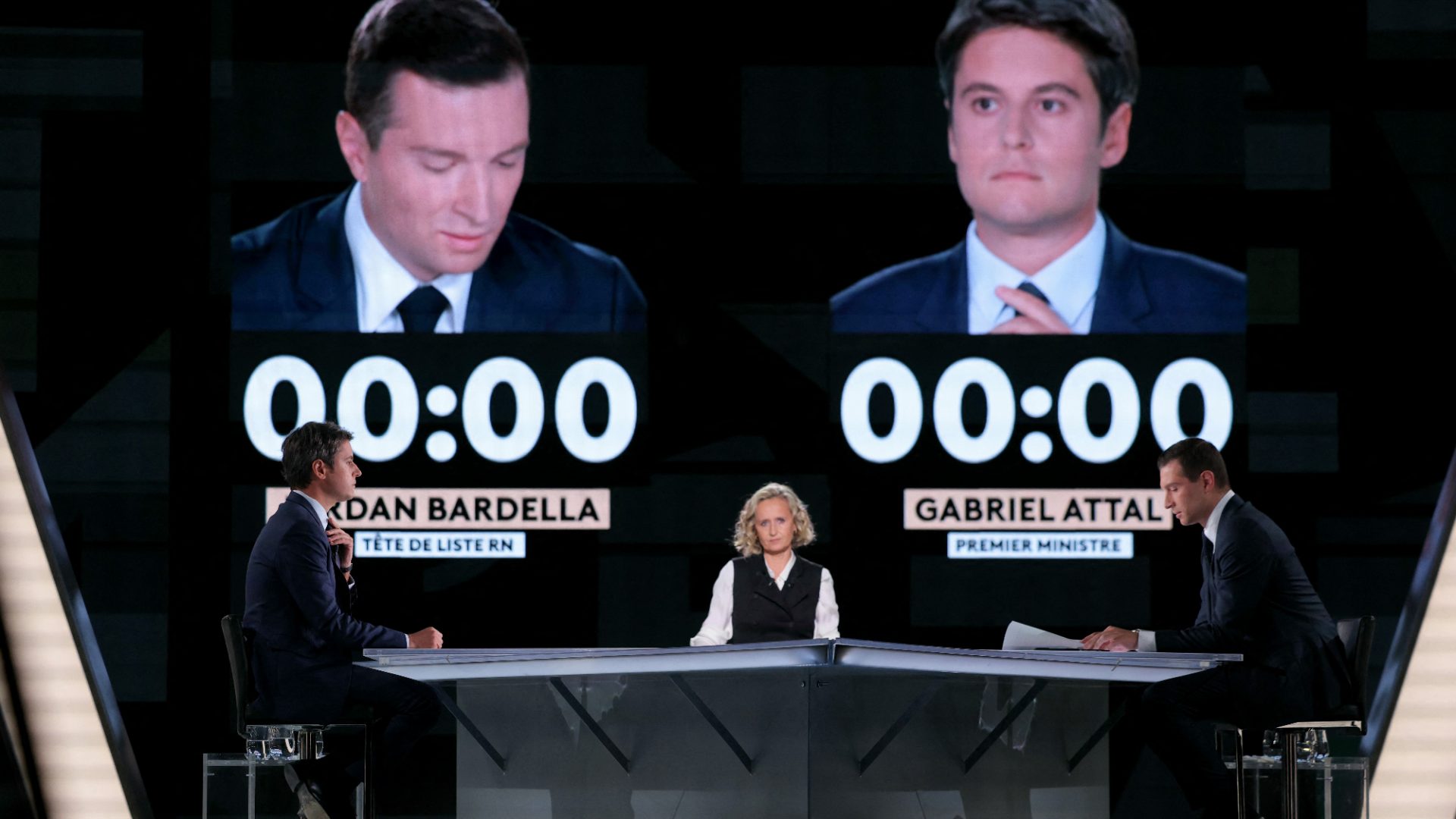A British comedian recently went around asking Americans who they thought Rishi Sunak was. Some had no clue, others guessed a DJ or sportsman. Talking to people about John Swinney, leader of the SNP and Scotland’s first minister, felt like a similar exercise. Only this wasn’t people across the pond – I was asking friends in Edinburgh.
The SNP are forecast to lose more than half their seats on July 4. Scandals have eroded their credibility, and with it the potential for IndyRef2. Following the resignation of Humza Yousaf as first minister, Swinney has been ruling the SNP – and Scotland – for just over a month.
The SNP are in the thick of finance probes and are trying to hold together a failing coalition, and in accepting the role it seemed that Swinney was drinking from a poisoned chalice. The election will hurt the SNP. Will Swinney survive?
And so I chucked the question “Does anyone know who John Swinney is?” on to a groupchat of some fairly knowledgeable friends. All bar one of the group replied “no”. Unlike Nicola Sturgeon or Alex Salmond, Swinney doesn’t just lack a personality cult, but a personality to form a cult around in the first place.
On paper, he has a respectable CV and a “slow and steady” approach, but Swinney doesn’t have the gravitas needed to turn the ship around. But with the election looming, the lack of name recognition may have a silver lining: if the SNP does suffer a big defeat, it will prove harder to pin the blame on him. After such a short time in charge, Swinney has a degree of plausible deniability.
The election has come at a bad time for the SNP, and Swinney has had no time to achieve anything in office – but what many people want now is stability. One person said constantly changing leaders wasn’t going to restore the trust lost after the scandals surrounding Sturgeon. Swinney’s distance from those controversies gives him some credibility. He has also taken on a job that his two predecessors have messed up – his position is not of his own making.
Looking around for a viable alternative to Swinney, there are only slim pickings. Kate Forbes, who has run for the leadership of the SNP before, is a divisive figure and has a disconnect with SNP’s traditionally more liberal supporters as well as the Scottish Greens. Asking for people’s best guesses of who might replace Swinney if he were to quit, the average response is a shrug. Personality cults are dangerous in politics, but a prospective leader has to have some appeal.
At the moment, Swinney’s only noticeable trait seems to be angelic innocence. Everything seems to be the fault of someone else. But there’s only so much blame-dodging that the electorate can stomach, and no matter how genuine some of the complaints are, people want someone who can step up and lead.
And then there’s the question of Scottish independence. One friend worries that if the SNP lose out to Labour, momentum will die after the election, while another claims it’s already diminishing and that the SNP will eventually turn into a Lib Dem-like party, not standing for much, just offering something different to the big, bad main parties.
It feels as though something big is needed for independence not to get lost in the mud, and that big thing may well be a leader with a bigger personality, able to whip up the SNP’s waning support. Swinney may be quietly strong and stable, but we all know how that went for the Tories.
Abigail King is a student writer based in Edinburgh



